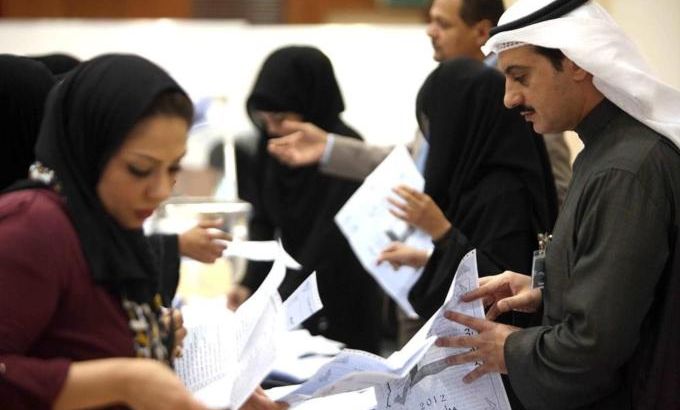Shia minority makes gains in Kuwait election
Shia candidates win 17 out of 50 seats in parliament, as opposition calls boycotted poll “illegitimate” due to turnout.

Kuwait’s Shia minority has won for the first time more than a third of the 50 parliamentary seats in polls boycotted by the opposition which declared the new assembly “illegitimate” due to poor voter turnout.
According to official results released on Sunday, the Shias – who form about 30 per cent of Kuwait’s native population of 1.2 million – won 17 seats compared with seven they won in the scrapped 2012 parliament and nine in the 2009 house.
Three women were elected to the new parliament compared to four in 2009, according to figures released by the National Election Commission.
The new house includes as many as 30, new faces as leading members of the opposition stayed away from the polls.
Sunni Islamists were reduced to a small minority of four MPs compared with as many as 23 in the house elected in February.
‘Unconstitutional’
The opposition said the boycott was very successful as a majority of voters stayed home, and described the election as “unconstitutional.”
“Based on statistics compiled by the opposition, the voter turnout was 26.7 per cent,” said former MP Khaled al-Sultan at the end of an emergency meeting by the opposition after the ballots closed.
The information ministry website, however, reported that turnover was 38.8 per cent and opposition youth groups reported lower percentages.
Veteran opposition leader Ahmad al-Saadoun said the “election is unconstitutional,” while several other former MPs called on Emir Sheikh Sabah al-Ahmad Al-Sabah to repeal the disputed amendment.
Voting passed off without any incident despite high political tension between the Islamist, nationalist and liberal opposition and the government led by the Al-Sabah ruling family.
The vote, the second in 10 months, came nearly two months after the emir dissolved a pro-government parliament following its reinstatement in June by a court ruling.
Calls for the boycott were instigated in protest to the government’s unilateral amendment of the electoral law ahead of the polls.
The opposition claimed the action enabled the government to manipulate the outcome of polls.